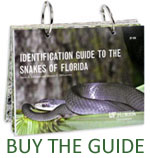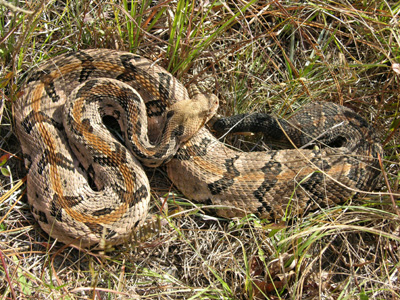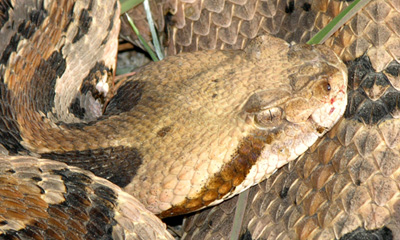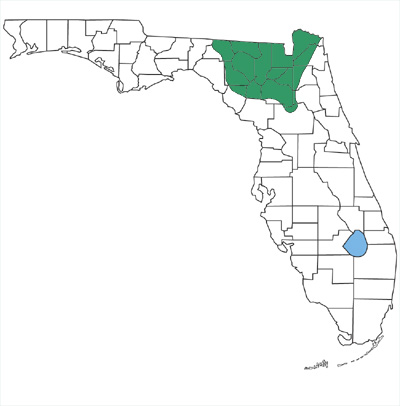Florida's Snakes

Timber Rattlesnake
(Crotalus horridus)VENOMOUS
Venomous snakebites are rare and can usually be avoided; however, knowing how to respond correctly to venomous snakebites is also important. Learn more...

Banded
Timber Rattlesnake


Photos by Dr. Steve A. Johnson (UF). These photos may not be used without the express written permission of the photographer.
Size:
Usually 3.5–4.5 ft. (max ~6 ft.)
Identification:
Thick body is pinkish-tan, yellowish-gray, or brown (occasionally black); tail is black and tipped with a large rattle. Back is marked with a rusty red stripe down the spine between brownish black “V”-shaped crossbands. Obvious red-brown bands run from each eye to the corners of the jaw. Scales have obvious lengthwise ridges (keels). This snake gives birth to live young (does not lay eggs).
Habitats:
Found only in northern Florida in the Suwannee River Basin and extreme northeastern panhandle, in bottomland hardwood forests, cane thickets, pine flatwoods, and the edges of swamps and wet prairies.
Diet:
Frogs, lizards, birds, mice, rats, rabbits, gophers
Map by Monica E. McGarrity - may be used freely for education.
